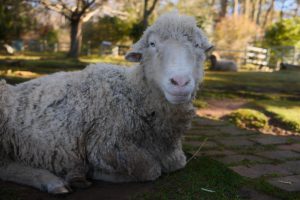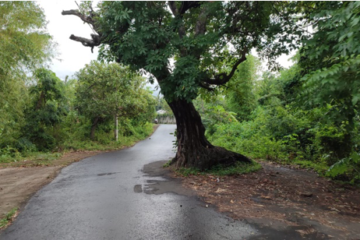Cooking up Change: A Hundred Years of World Animal Day

Nonhuman animals have always preoccupied the human mind, some animal species—and some human minds—more than others. Communities throughout history have opted to leave animals off the menu. At the end of the 19th century and beginning of the 20th century the vegetarian movement was well established particularly in Germany, Russia, the UK, and the USA with an increasing number of vegetarian societies, restaurants, and hotels populating the place. Tolstoy, who himself abstained from meat for ethical reasons and, in 1892, wrote the foreword to the Russian edition of Williams’ book The Ethics of Diet, saw these developments as a sign that, morally, humanity was on the right track. Thirty-three years later, on 24 March 1925, the hype was still there when, in Berlin, Heinrich Zimmermann organized the first World Animal Day, which attracted a crowd of 5,000 people. A few years later in Florence, at a congress of the world’s animal protection organizations, the date was officially moved to 4 October, the feast day of St Francis of Assisi, patron saint of animals and ecology.
While over the following years the number of vegetarian restaurants declined rapidly and would not pick up again until the early 21st century, world animal day has continued to live on. Each year for the past one hundred years, on 4 October, humans around the globe have come together to celebrate our animal kin. A lot has changed in the past hundred years, and nonhuman animals are perhaps more present in our minds than ever before—not only our beloved companion species and the disappearing wildlife, but also those who have intentionally and systematically been made invisible, i.e. farmed animals—those complex psycho-biological individuals comparable to humans in everything that counts, but hidden away and only allowed to resurface when cleaned of all life and reshaped for easy palatability.
As the public is becoming increasingly more aware of the ethical horrors of animal farming and slaughter, the growing realization of the impact of animal agriculture on the environment (a proverbial elephant in the room until recently) is at last penetrating discussions of climate change. Over the past decades, the global food system has been driven by a ‘cheaper food’ model, prioritizing high output at low cost. This has led to intensified farming practices that are literally torturous to the animals trapped in these systems but also degrade soils and affect ecosystems and biodiversity.
Through deforestation, emissions, land and water use, and pollution, animal agriculture has a disproportionately heavy impact on the environment and is a key driver of climate change. Transitioning to a plant-centric diet would liberate land for ecosystem restoration and carbon sequestration, provide economic opportunities for producers adapting to sustainable practices, and strengthen regional food security. On a global scale, by shifting away from meat and dairy, Sir David Attenborough reminds us, “we could still produce enough food to feed us, but using a quarter of the land. This could free up the land the size of the US, China, the European Union and Australia combined. Space that could then be given back to nature.”
As global warming escalates, and threats to economies and mere survival are becoming increasingly more obvious, ignoring the role of food systems in the climate crises is no longer an option. Excessive consumption of animal-based foods, common for high income communities, also puts consumers’ health at risk. With both in mind, in 2019, the EAT Lancet Commission proposed global plant-forward dietary guidelines, known as the Planetary Health Diet. The general consensus is that the diet of the future is plant-centric, and, with varying levels of ambition, governments and non-governmental organizations around the world are actively supporting the shift to alternative protein and plant-rich food paradigms by investing in research and development, supporting farmers transition away from animal agriculture and diversify, educating chefs and the public, among others.
For instance, in October 2023 Denmark issued the Danish Action Plan for Plant-based Foods, prefaced by agriculture minister Jacob Jensen who begins with the statement: “Plant-based foods are the future.” Ten days after the announcement of the Danish plan, South Korea unveiled a comprehensive plan to develop a plant-based food industry. Other countries are devising strategies and programs for the development and promotion of the alternative protein sector to cover domestic protein needs and open export opportunities in this rapidly growing industry.
Our Blue Mountains region, a UNESCO World Heritage site, just west of Sydney in Australia, is both stunningly beautiful and dangerously vulnerable. Therefore sustainability and resilience-building (both on material (infrastructure, etc.) and residents’ personal levels) are key words underpinning many community and local government initiatives. Last year, I co-organized with the Blue Mountains Planetary Health Initiative (a local Council initiative led by the formidable Lis Bastian), the first world animal day celebration in our area, themed respectful cohabitation, reminding people that other animals live around us and the planet is their home too. This year, in honor of the centenary of world animal day, we are expanding the celebrations to reflect the range of interconnectedness and cross-influence of animal life—human and other. We begin with an animal-focused poetry event on 4 October, which will also serve as tribute to Dr Christine Townend, a recently deceased local resident and pivotal figure in the establishment, in the 1970s, of the contemporary animal liberation movement.
The following weekend the Plant Inspired project and Leura Uniting Church are launching our monthly plant-based community luncheons, which will also function as a ‘climate cafe’—a safe space where people can share their feelings of climate anxiety and grief (while also finding inspiration in the knowledge that their food choices make a big difference). The weekend after people will be able to join us at the Planetary Health center for a Food Security Fair that will feature a number of stalls, activities, and talks, including a presentation by Dr Milena Bojovic on alternative protein and farm transitioning, and a plant-based aquafaba ice-cream-making session for kids big and small.
“World animal day is an opportunity for us to not only reflect on our treatment of all animals, but recognise we are a part of the animal kingdom too,” reminds us Pam Ahern, the Australian World Animals Day ambassador and founder of the Edgar’s Mission farmed animal sanctuary whose motto reads: “If we could live happy and healthy lives without harming others, why wouldn’t we?”
#
Dr Teya Brooks Pribac is a scholar and community developer, based in the Australian Blue Mountains. She holds a PhD in animal grief from the University of Sydney. Her award winning books include the monograph Enter the Animal and the memoir Letters to My Sheep (forthcoming in Spanish translation by Diversa Ediciones)..
Counterpoint blogs may be reprinted with the following acknowledgement: “This article was published by Counterpoint Navigating Knowledge on 25 September 2025.” The views and opinions expressed on this website, in its publications, and in comments made in response to the site and publications are those of the author(s) and do not necessarily reflect the views and opinions of Counterpoint: Navigating Knowledge, its founders, its staff, or any agent or institution affiliated with it, nor those of the institution(s) with which the author is affiliated. Counterpoint exists to promote vigorous debate within and across knowledge systems and therefore publishes a wide variety of views and opinions in the interests of open conversation and dialogue.
Photo credits: Henry (2010–2025). © Claudia Altavilla, July 2025.



0 Comments